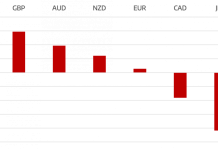#CryptoConfidence : A campaign To Help Women Get Comfortable With Crypto
• #CryptoConfidence : The multimedia campaign, encompassing female employees, customers and influencers, is targeted at helping women to improve their understanding and confidence when it comes to cryptocurrencies.
• By sharing a range of inspirational stories about how crypto is changing lives, Zumo is looking to empower women from all backgrounds to become more comfortable with crypto and address the current gender imbalance in the sector.
• Zumo’s accessible platform has fuelled 25% month-on-month growth in its user base since it launched in August 2020, with 43% of users from Gen Z (18-24).

Zumo, the Edinburgh-based crypto wallet and payments platform, has today announced the launch of its #CryptoConfidence campaign, designed to help women to become more comfortable with crypto.
Tying in with the values of International Women’s Day, which celebrates the social, economic, cultural and political achievements of women around the world, this new initiative sees Zumo positively engaging with women of all ages and backgrounds to help them gain a better understanding of the use cases of crypto and boost their confidence.
Zumo is conducting a series of interviews with its female employees, customers and a number of prominent influencers, including Olamide Majekodunmi, Founder of All Things Money, Charlotte, the ‘Looking After Your Pennies’ blogger, and Laura, the ‘Thrifty Londoner’ blogger. They are being asked to share their own personal stories and experience of crypto to inspire other women who are keen to get involved.
This diverse range of content, hosted on Zumo’s website, will be shared over social media in the coming weeks so that women can watch, listen to and read other women’s motivating stories. From April, Zumo will also be hosting a monthly online meet-up; an inclusive, safe place for women to learn more about crypto and discuss their experiences.
Amelie Arras, Marketing Director, Zumo, said: “Since Day 1, Zumo has prioritised being inclusive and accessible. We think it’s really important that more crypto-confident women come forward to share their stories; if each social media post or video inspires another woman to get to know more, it’s a step closer to achieving a better balance in the industry.”
“We want to help women to become more confident with crypto because it’s the future. By encouraging women to share their own personal insights and experiences, we can create a movement.”
Amelie will be talking more about the campaign in an Instagram Live session with Financielle, the female-focused financial wellness app, on Wednesday 9 March at 12pm UK time.
Laura, the ‘Thrifty Londoner’ blogger, added: “I’ve always found there’s huge power in storytelling. I’m very excited to have this opportunity to fuel the conversation about women’s financial wellness. Crypto is growing in popularity, offering female investors better returns at a time when the incumbent financial system is letting them down. It’s crucial that we help women who are looking to get involved to navigate the complexities.”
Industry studies have highlighted a significant gender divide when it comes to cryptocurrency. A 2021 survey by Finder.com, for example, revealed nearly twice as many men as women invest in crypto (24% of men v 13% of women). Zumo’s #CryptoConfidence campaign seeks to address this imbalance by improving knowledge and confidence.
Zumo’s secure, easy-to-use cryptocurrency wallet allows anyone to buy, sell, store, send and spend cryptocurrencies alongside traditional British Pounds. Driven by transparency, accessibility and financial inclusion, Zumo is providing a new generation of smart money solutions for a new, decentralised economy. The company’s customer base has grown 25% month-on-month since the platform launched in August 2020, with 43% of its users from Gen Z (18-24).
Tradersdna is a leading digital and social media platform for traders and investors. Tradersdna offers premiere resources for trading and investing education, digital resources for personal finance, market analysis and free trading guides. More about TradersDNA Features: What Does It Take to Become an Aggressive Trader? | Everything You Need to Know About White Label Trading Software | Advantages of Automated Forex Trading











































